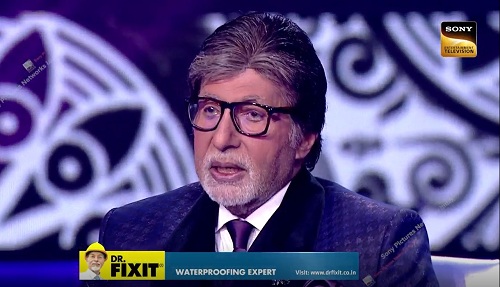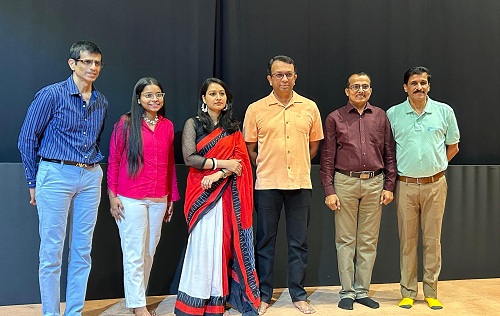Atlantic Watches Unveils Elegance Romantic Yellow Gold PVD
For over a century, Swiss watchmaker Atlantic has been crafting timepieces that combine precision with elegance, earning a reputation for exceptional quality and style. The Elegance Romantic Yellow Gold PVD is no exception—designed to seamlessly complement a woman’s wardrobe, it adds a touch of sophistication to both casual ensembles and formal attire.

The Elegance Romantic Yellow Gold PVD features a 34mm stainless steel case with a luxurious yellow gold PVD finish, paired with a chic Milanese-style bracelet for a refined look. The champagne-colored dial, embellished with zirconia stones of varying sizes, radiates timeless charm, while golden hands and accents enhance its graceful design.
Protected by durable sapphire crystal and powered by a Swiss-made quartz movement (Ronda R763), this slim, 8mm watch offers precision and durability. With water resistance up to 30 meters, it is as practical as it is beautiful.
Whether it’s a daytime brunch, a romantic evening, or a special celebration, this stunning timepiece is the perfect companion to elevate any occasion.
Frederique Constant Celebrates 25 Years with Highlife Chronograph
Frederique Constant’s showcase collection is celebrating its twenty-fifth anniversary this year and unveiling brand new variations of its sports model, the 41-millimetre Chronograph Automatic, to mark the occasion. The first two releases feature highly complementary approaches: one is a non-limited edition featuring the exquisitely elegant combination of a rose gold-plated case and a midnight blue dial; the other is a limited edition of 1888 pieces housed in a steel case and offering the unusual combination of an opaline dial with green counters, setting a contemporary, sportier tone. Powered by the FC-391 calibre with its 60-hour power reserve, the two pieces will come with two and three interchangeable straps respectively, as is the custom.
Frederique Constant’s Highlife collection was very much ahead of its time when it emerged on the watchmaking scene in 1999 with an interchangeable, integrated strap, a design in keeping with the best traditions of Swiss fine watchmaking, high-level finishings, and careful attention to detail – all at affordable prices making Swiss Made luxury as widely available as possible.
The relaunch of the collection in 2020, accompanied by musician, producer and brand ambassador The Avener, immediately proved to be one of the Manufacture’s greatest successes.

The launch of two more new references is thus a major event, doubling the size of the collection at a stroke; above all, it provides collectors with two completely different alternatives. The first now enters the standard collection and introduces a new variation on the Highlife Chronograph Automatic with the very first edition in plated rose gold. This luxurious choice delivers a model that’s still affordable whilst adding a touch of gold – a key component of the traditional, classy ethos of fine watchmaking. The piece’s blue dial and strap and snailed silver subdials assert its unashamedly modern style. The finely worked details will be especially appreciated: hand-polished hands, alternating polished and satin surfaces and the option of a blue suede strap with crocodile pattern embossing alongside the rubber strap alternative.
The second piece takes a very different direction; rather than being a part of the collection, it will be strictly limited to just 1888 watches, making it a rare collector’s item. It’s only the second time in three years that Frederique Constant has produced a limited-edition steel Highlife Chronograph Automatic.
The steel case heralds a sporty temperament; the choice of straps and the fir green counters further assert the piece’s outdoor vocation. This variation remains subtly understated when combined with its green suede strap for city wear, while the other two straps (one in brushed polished steel, the other made from rubber) establish it as ready to explore the planet; the globe outline engraved on the surface of the opaline dial offers further confirmation of this calling.
The two sisters, each with their own temperament, share the same beating heart: the FC-391 calibre, powering an hours/minutes/seconds tricompax display and a date window at half past four. This reliable, tried and tested movement is already present in the collection’s two existing Highlife Chronograph Automatics and offers a 60-hour power reserve, taking the timepiece comfortably through the weekend so that those who remove their watch on a Friday evening will find it still faithfully telling the time on Monday morning. Visible through a sapphire crystal caseback, the calibre features Côtes de Genève decoration and is fittingly housed in a 41-millimetre case, guaranteed water resistant to 10 ATM.
Dinesh Karthik & Dipika Pallikal Celebrate Valentine’s in Mia by Tanishq Film
Chandigarh, 27 January 2025: Mia by Tanishq, one of India’s leading precious fine jewellery brands, presents its Valentine’s Day campaign featuring celebrated sports icons and real-life couple, Dinesh Karthik and Dipika Pallikal. Conceptualized by Famous Innovations, the campaign captures the essence of modern-day love and thoughtful gifting through playful yet emotional visuals, showcasing the couple’s dynamic bond in a heartening and authentic narrative.
The campaign beautifully captures the essence of meaningful gifting, amalgamating humour and genuine emotion. Set to a soft, uplifting soundtrack, the film opens with Dipika waking to find Dinesh, apron-clad, humorously narrating her morning routine in his signature commentary style while carrying a breakfast tray. Beneath the cloche lies a Mia box which Dinesh opens to show a dazzling Mia Toi-et-Moi ring. This sparks a tender moment between the couple as Dinesh transitions from playful commentator to doting husband, delivering a wholesome Valentine’s proposal. Dipika matches his charm with her own cheeky wit, culminating in an intimate, touching moment as he places the ring on her finger, celebrating their love with warmth and smiles.

Known for their inspiring journey of unwavering love and shared success, the charming duo perfectly embody contemporary relationship values of celebrating each other as individuals and together, that Mia by Tanishq celebrates. They push the audience to take Valentine’s as the perfect opportunity to celebrate their partners for the love, understanding and unwavering support that they offer every day.
Speaking about the campaign, Ms. Shyamala Ramanan, Business Head, Mia by Tanishq, said, “At Mia, we believe love is woven into the fabric of everyday moments, the whispered promises, the thoughtful gestures that speak louder than words. This Valentine’s Day, we celebrate the beauty of these delightful surprises and the joy of gifting through our heartwarming film featuring Dinesh Karthik and Dipika Pallikal. Just like their story, we hope every Mia piece you gift your partner becomes a romantic gesture that echoes in their heart, a love that grows brighter with each passing day.”
George Kovoor, Chief Creative Officer, Famous Innovations (South), said, “Every year, couples strive to make Valentine’s Day unforgettable. This year, Dinesh Karthik and Dipika Pallikal provide them the perfect inspiration. In this film, they craft a truly romantic moment—with a dazzling twist. The highlight comes when DK transforms a simple gesture into an extraordinary memory by gifting Dipika a stunning Mia diamond ring. Together, DK and Dipika not only make this Valentine’s Day film exceptional but also beautifully embody everything Mia represents in their own unique and heartfelt way.”
Suzlon, Torrent Power Hit 1 GW Wind Energy Milestone with 486 MW Order
Chandigarh, January 27, 2025: Suzlon Group, and Torrent Power Ltd. have achieved a remarkable milestone together, now powering 1 GW of wind energy for India with a new 486 MW hybrid order. This strategic collaboration is pivotal in supporting India’s ambitious target of achieving 50% of electricity from renewable sources and strengthening the Make in India initiative.
Under the agreement, Suzlon will supply 162 state-of-the-art S144 wind turbine generators (WTGs) with Hybrid Lattice (HLT) Towers, each rated at 3 MW capacity in the Bhogat region in Gujarat.
Girish Tanti, Vice Chairman, Suzlon Group, said, “We are proud to partner with Torrent, a pioneer in integrating renewables into their energy portfolio. Our decade-long collaboration has reached a remarkable milestone – 1 GW of cumulative orders across Gujarat and Karnataka. Built on trust, innovation, and a shared vision, this partnership has leveraged advanced technologies to deliver quality power to nearly 1 million households. Together, we remain committed to driving India’s energy transition and building a sustainable future.”
JP Chalasani, Chief Executive Officer, Suzlon Group, said, “Torrent Power has been a valued long-term partner in our journey, and together, we share a vision of providing reliable, sustainable, and quality power to the nation. The success of our S144 wind turbine, known for its ability to deliver optimal power performance even in low-wind conditions, has been a key driver of this collaboration. This milestone highlights the strength of our partnership and the impact of advanced technology in accelerating India’s renewable energy future.”
Dr. Fixit marks its 25 Years with KBC’s Silver Jubilee Season
Chandigarh, January 27, 2025 – Dr. Fixit, the leading waterproofing solutions brand from Pidilite Industries Ltd., announced its collaboration with Kaun Banega Crorepati (KBC) for its landmark Silver Jubilee Season airing on Sony Entertainment Television. Both brands celebrate their 25th anniversary this year. The partnership will run across 40 special episodes, delivering impactful visibility and meaningful audience connection.
Speaking about the collaboration, Sandeep Tanwani, Chief Marketing Officer, Pidilite Industries Ltd., said, “Over the last 25 years Dr. Fixit’s expert waterproofing solutions have ensured that consumers’ most significant investment—their home—is protected against leakage and damage. Our association with KBC aligns perfectly with the ethos of using one’s expertise to bring meaningful change to lives. This partnership is a step forward in reinforcing our commitment to providing pioneering solutions to Indian consumers.”

Celebrating its 25th year, KBC continues to inspire millions with its intellectually inspiring and captivating format. This collaboration will see Dr. Fixit seamlessly integrated into the show’s format, strengthening its positioning as the ‘Waterproofing Expert’ through various high-engagement elements.
Leveraging the platform’s prominence, Dr. Fixit’s key integrations will include featuring in the “Expert Play of the Day” segment during every episode. Additionally, some winners who have used their expertise to reach a milestone in the show will receive an exclusive Dr. Fixit hamper—enhancing the brand’s association with expertise and reliability.
The collaboration aims to build awareness and engage meaningfully with audiences while further cementing Dr. Fixit’s position as the preferred expert in waterproofing solutions.
Sahiba Bali Energizes Coldplay’s Pre-Concert Show in Ahmedabad
27 January 2025: While the Coldplay phenomenon sweeps Indian fans, Ahmedabad was entertained as Sahiba Bali hosted the pre-concert show for the Ahmedabad leg of the band’s iconic ‘Music of Spheres’ tour on January 26th, 2025.
The Grammy-winning quartet delivered an epic performance, but not before Sahiba pumped up the energy for both fans and celebrities through a fun, interactive prelude to the memorable evening. Sahiba Bali is on her way to becoming the ultimate millennial icon. She is smart, witty, and grounded. Straddling the corporate and entertainment worlds, she has developed the ability to connect with the audience through quick wit and intelligence. This versatility helped her keep the fans engaged before the musical experience. She has done everything from hosting to acting to being a sports presenter, and with great skill!

For the pre-concert show, she became the hype queen, keeping the spirits of around 1.2 lakh audience members alive with fun games, trivia, and celebrity interviews. The fans enjoying the concert from their homes on Disney+ Hotstar also witnessed the allure of Chris Martin and co., as they painted the arena into colors of love, peace, and hope! This was not Sahiba’s first rodeo! She has proven her mettle at major sporting events in the past. Sahiba has carved her niche in the sports world, having a successful association with Star Sports for the IPL season and the T20 World Cup.
The pre-concert show highlighted that she can easily command any environment, be it a film set, concert arena, or boardroom. From being a marketing maven to delivering a critically acclaimed performance in ‘Laila Majnu’ and hosting Zomato’s star-studded food series on YouTube (racking up millions of views), this Delhi girl’s limit is beyond the sky. With the Coldplay moment, she has proved that staying grounded, smart, and passionate is the ultimate recipe for success.
ParkMate Welcomes Union Budget 2025-26: Boost for R&D and Startups
By: Dhananjaya Bhardwaj, CEO And Founder, ParkMate
At ParkMate, we’re thrilled with the incredible opportunities presented in the Union Budget 2025-26. The announcement of a 1 lakh crore fund for private sector R&D, backed by a 50-year interest-free financing scheme, is a game-changer for us. It empowers our team to dream bigger, work on groundbreaking ideas, and develop innovative solutions that can transform parking and mobility as we know it. This isn’t just about research-it’s about creating technologies that solve today’s challenges while preparing for a smarter sustainable tomorrow. On top of this, the extension of tax benefits for startups until March 31, 2025, is a significant boost for companies like ours. It reinforces the government’s trust in startups and provides the support we need to stay focused on building advanced parking solutions that genuinely make life easier. These measures fuel our commitment to innovation and inspire us to contribute even more to the nation’s progress.
Fleetguard Filters Supports ‘Prabhaar’ to Promote Girl Child Education
Pune, 27th January, 2025: On the occasion of International Day of Education, a short film titled ‘Prabhaar’—a poignant narrative promoting girl child education was released. Directed by Rahul Panshikar and inspired by a true story of Heena Mistry, ‘Prabhaar’ sheds light on the deeply ingrained patriarchal attitudes that hinder the educational aspirations of young girls in certain communities.
The film revolves around the journey of Neena, a determined young girl who defies societal norms and overcomes significant hardships in her quest for education and self-reliance. Through its emotionally charged storytelling, ‘Prabhaar’ captures the resilience and indomitable spirit of Neena as she navigates the challenges posed by her environment.
Speaking at the event, Heena Mistry today a practicing Bombay High Court Lawyer, shared her emotional and inspiring story with the audience highlighting the struggles of girls to get an education and its prevalence to this date in society. She wishes to motivate many other girls facing similar circumstances and take control of their lives.

Saloni Kumari, another student who faced similar challenges spoke of her journey from Darbhanga to Delhi facing similar challenges. Navnath Shinde also told from his own experience of getting educated and spoke of how one can live a golden life by getting education if he/she gets help at the right time.
Speaking at the launch, Mr. Sanjay Kulkarni, President of FFPL, said “Today, the issue of girls’ education is a serious issue at various levels in the country. Many problems such as the lack of toilets in schools stopping girls ‘ education after menstruation and the patriarchal male mentality, hinder the education of girls. We under FFPL’s CSR have constructed toilets for girls in over 30/35 schools so far.” He also expressed that when mothers stand firmly by their girls, girls get the strength to face problems and can progress well in academics. He also highlighted the need to shift the community mindset regarding girls’ education.
FFPL has long been committed to driving positive social change through its comprehensive Corporate Social Responsibility (CSR) initiatives, which span Health & Safety, Education & Promotion of Art & Culture, Environment & Local Community Infrastructure Development, and Social Justice. With ‘Prabhaar,’ FFPL continues to reinforce its dedication to education and empowerment as key pillars of its CSR efforts.
Jyoti Mayal Calls for New Era in Indian Tourism on National Tourism Day 2025

By: Mrs. Jyoti Mayal, CEO of Redhat Communications and Chairperson of the Tourism and Hospitality Skill Council (THSC)
National Tourism Day ‘25 is an opportunity to celebrate India’s incredible journey in travel and tourism while welcoming the future with renewed aspirations. As Indian travellers increasingly venture beyond borders and explore global destinations, Mrs. Jyoti Mayal, CEO of Redhat Communications and Chairperson of the Tourism and Hospitality Skill Council (THSC), highlights how the World Travel & Tourism Festival 2025 will set the stage for a more empowered and inclusive tourism industry.
Scheduled from February 14 to 16, 2025, at the Major Dhyan Chand National Stadium, India Gate, the festival represents a landmark collaboration between TV9 Network and Redhat Communications. This one-of-its-kind event aims to bring the entire travel and tourism ecosystem together, from industry leaders to grassroots entrepreneurs, while creating immersive and memorable experiences for attendees. Spanning over 45,000 sq. ft., the festival offers an unparalleled immersive experience with personalized travel consultations, expert-led talks, and extensive networking opportunities with industry leaders. The event features a top music concert, cultural performances, a food zone, travel tech showcase, competitions, and more.
Reflecting on the significance of this year’s National Tourism Day, Mrs. Mayal remarked, “Tourism is not confined to discovering new places. It is also about connecting hearts, instilling understanding, and driving economic growth. With India’s tourism sector on the cusp of a new era, the World Travel & Tourism Festival 2025 will provide an unparalleled platform to celebrate, collaborate, and innovate.”
The festival is set to redefine how travel is experienced and celebrated. From cultural performances that showcase India’s heritage and global traditions to travel technology exhibits that highlight the role of innovation in transforming the travel experience, the event will explore every facet of the industry. Attendees will also have access to personalised travel consultations, allowing them to craft itineraries tailored to their unique preferences. Culinary enthusiasts can look forward to a dedicated food and cuisine zone, while families, solo travellers, and adventure seekers can engage in a variety of competitions and activities designed to inspire wanderlust.
Mrs. Mayal also emphasised the need to prioritise skilling within the tourism sector, an area she has championed tirelessly. She explained, “For India to emerge as a global tourism leader, we must invest in our people. Skilling is the backbone of this industry. Right from training hospitality staff to meet international standards or equipping artisans and small business owners with the tools to thrive, skilling ensures that every part of the tourism value chain is prepared for the future.”
The festival’s vision goes beyond creating extraordinary experiences. It promotes collaboration and opening up opportunities for small businesses, artisans, and entrepreneurs who form the backbone of India’s tourism ecosystem. It is set to provide a unique platform for these stakeholders to connect with a global audience, unlocking new avenues for growth and visibility.
